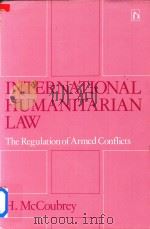《The regulation of international economic relations through law》
| 作者 | Kohona;Palitha Tikiri Bandara. 编者 |
|---|---|
| 出版 | M. Nijhoff Publishers |
| 参考页数 | 280 |
| 出版时间 | 1985(求助前请核对) 目录预览 |
| ISBN号 | 9024731046 — 求助条款 |
| PDF编号 | 813694758(仅供预览,未存储实际文件) |
| 求助格式 | 扫描PDF(若分多册发行,每次仅能受理1册) |
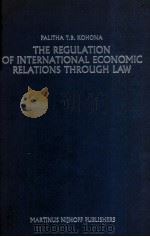
PART ONESOME GENERAL COMMENTS ON THE REGULATION OF INTERNATIONAL ECONOMIC RELATIONS THROUGH LAW1
Chapter 1. Introduction3
1. Historical developments - response to changing needs3
2. Comments on this development5
3. Current position - the use of international agreements6
4. The significance of international organisations7
5. Norm-making by international organisations8
6. Decisions of international organisations9
7. Resolutions adopted by international organisations9
8. Some shortcomings in the above developments11
9. Expansion of the scope of international law11
10. Conclusions14
Notes15
Chapter 2. The regulation of international economic relations through multilateral agreements and international organisations20
1. Introduction20
2. The impact of multilateral economic agreements21
2.1. The manner in which they operate23
3. Factors that influence the conclusion of multilateral economic agreements24
4. Parties to multilateral economic agreements26
5. Economic organisations created by multilateral agreements28
6. Membership of international economic organisations29
6.1. Withdrawal from membership32
6.2. Suspension of membership34
7. The legal personality of such organisations35
8. Conclusions38
Notes39
Chapter 3. An overview of specific multilateral economic agreements43
1. Introduction43
2. Agreements that are comprehensive in scope and intensity44
2.1. An overview of the EEC treaty in comparison with other agreements in this category45
3. Agreements that are comprehensive in scope but not in intensity50
3.1. ECE and similar organisations51
3.2. CMEA (Comecon)54
4. Agreements that are intensive in the manner in which they regulate specific matters56
4.1. GATT and similar organisations57
4.2. Commodity agreements61
4.3. History of commodity agreements61
4.4. The future of commodity agreements64
5. Conclusions66
Notes68
PART TWOINTERNATIONAL IMPLEMENTATION OF MULTILATERAL ECONOMIC AGREEMENTS81
Chapter 4. Policy and norm-making function83
1. Introduction83
2. Determination of policy84
3. The norm-making function (legislative?) of international economic organisations89
3.1. Decisions91
3.2. Codes of conduct101
3.3. The role of resolutions in norm-making106
4. Procedure for the adoption of norms of conduct109
4.1. Requirement of unanimity110
4.2. Consensus decisions111
4.3. Special majorities112
4.4. Simple majorities113
4.5. Weighted majorities113
5. Conclusions115
Notes117
Chapter 5. The executive function122
1. Introduction122
2. The role of the executive123
2.1. In organisations created by agreements which are comprehensive in scope and intensity124
2.2. In organisations created by agreements which are narrow in scope127
2.3. In organisations created by agreements which are comprehensive in scope but not in intensity133
3. Controlling function in the main organ134
4. Actual role of executive and administrative organs135
5. Committees and sub-committees136
6. Regional conferences143
7. Conclusions143
Notes145
Chapter 6. The function of determining rights and obligations149
1. Introduction149
2. Resolution of disputes150
3. Resolution of disputes in an amicable manner153
3.1. Consultations153
3.2. Negotiations158
3.3. Investigations and recommendations161
3.4. Some comments on the above manner of resolving disputes166
4. Quasi-judicial tribunals167
5. Conciliation168
6. Arbitration169
6.1. The effects of private international law170
6.2. Specific provisions171
6.3. Reference to arbitration173
6.4. Place of arbitration174
6.5. Specific procedures175
6.6. Jurisdiction177
6.7. Constitution178
6.8. Hearings and decisions181
6.9. The requirements of ex aequo et bono182
6.10. Binding nature of decisions183
6.11. Conclusions184
7. Tribunals of a judicial nature185
7.1. Permanent tribunals186
7.2. Ad hoc tribunals192
7.3. Use of the executive organ to discharge a function of a judicial nature197
7.4. Use of the ICJ in dispute settlement202
8. An evolving hierarchy of courts204
9. Review of administrative action206
10. Parties which could appear before a tribunal212
11. Nature of the jurisdiction - mandatory or voluntary218
12. Procedure followed by such tribunals220
13. The nature of the decision222
14. Conclusions226
Notes227
Chapter 7. The enforcement of international economic norms236
1. Introduction236
2. The enforcement of international economic agreements with no provisions on sanctions237
3. Agreements containing provisions on sanctions241
4. Unilateral retaliation242
5. Retaliation which is authorised by the organisation246
6. Joint sanctions247
7. Factors that militate against the use of sanctions for the enforcement of economic norms253
8. Conclusions259
Notes259
PART THREECONCLUSIONS263
Bibliography269
Index277
1985《The regulation of international economic relations through law》由于是年代较久的资料都绝版了,几乎不可能购买到实物。如果大家为了学习确实需要,可向博主求助其电子版PDF文件(由Kohona;Palitha Tikiri Bandara. 1985 M. Nijhoff Publishers 出版的版本) 。对合法合规的求助,我会当即受理并将下载地址发送给你。
高度相关资料
-

- INTERNATIONAL RELATIONS LAW OF THE EUROPEAN UNION
- 1997 LONGMAN
-

- THE DEVELOPMENT OF INTERNATIONAL LAW THROUGH THE POLITICAL ORGANS OF THE UNITED NATIONS
- 1963 OXFORD UNIVERSITY PRESS
-

- THE LAW OF INDUSTRIAL RELATIONS
- 1981 LONDON BUTTERWORTHS
-

- THE CHANGING STRUCTURE OF INTERNATIONAL ECONOMIC LAW
- 1981 MARTINUS NIJHOFF PUBLISHERS
-

- Illegal Immigration and Commercial Sex the New Slave Trade
- 1999 Frank Cass
-

- Restructuring the international economic order:the role of law and lawyers
- 1987 Kluwer Law and Taxation Publishers
-
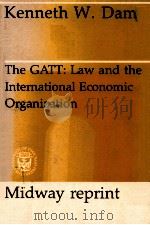
- THE GATT LAW AND INTERNATIONAL ECONOMIC ORGANIZATION
- 1970 THE UNIVERSITY OF CHICAGO PRESS
-
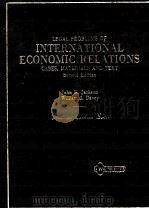
- INTERNATIONAL ECONOMIC RELATIONS
- 1986 WEST PUBLISING CO
-

- INTERNATIONAL MEDICAL MALPRACTICE LAW
- 1988 J.C.B.MOHR
-
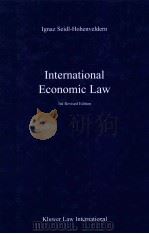
- International economic law
- 1999 Kluwer Law International
-
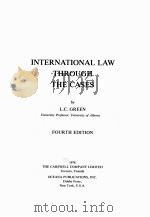
- INTERNATIONAL LAW THROUGH THE CASES FOURTH EDITION
- 1978 THE CARSWELL COMPANY LINMITED
-
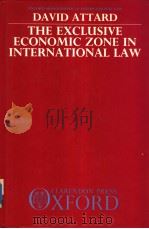
- THE Exclusive Economic Zone in International Law
- 1987 CLARENDON PRESS
-

- Thinking Through The Body of the Law
- 1996 ALLEN & UNWIN
-

- The World Trade Organization and the Evolution of International Economic Law
- 1997 UMI Dissertation Services
提示:百度云已更名为百度网盘(百度盘),天翼云盘、微盘下载地址……暂未提供。➥ PDF文字可复制化或转WORD
